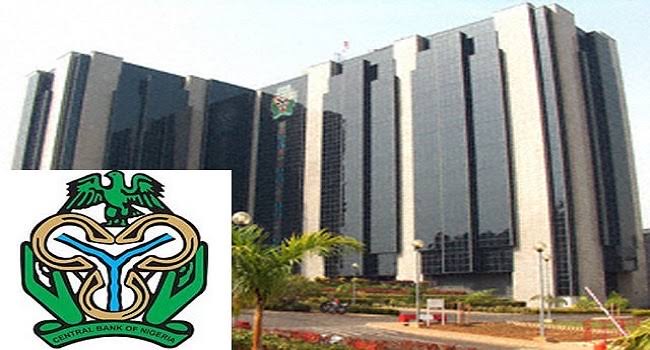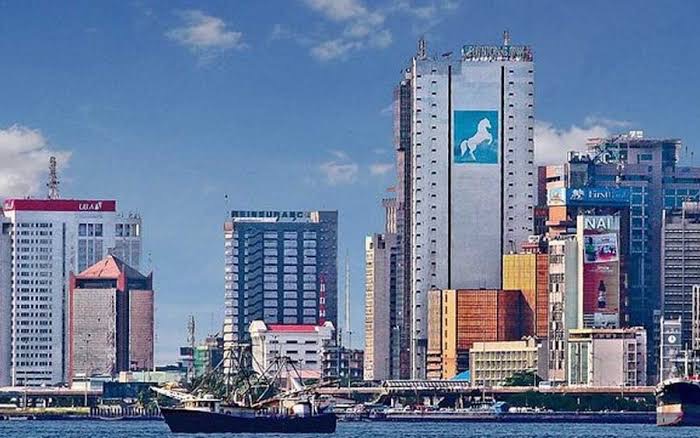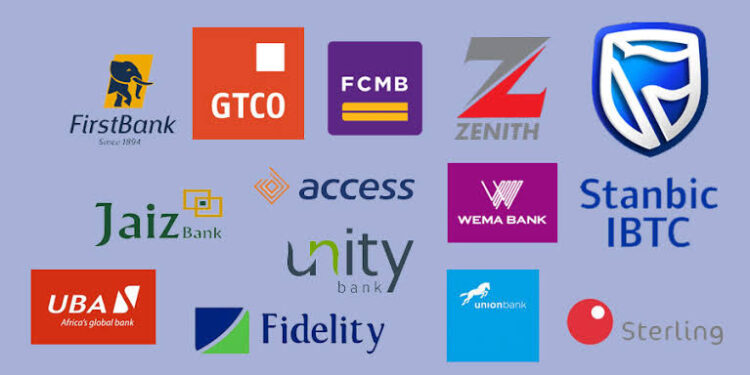Ecobank Transnational Incorporated (ETI), Guaranty Trust Holding Company (GTCO), and Zenith Bank Plc have emerged as the leading financial institutions in Nigeria, reporting remarkable increases in their net interest income for the first half (H1) of 2024.
According to data compiled by Journalists, these three listed lenders have shown significant growth, reflecting their strategic financial management and the impact of the prevailing economic environment.
In their latest financial disclosures, Ecobank recorded an impressive surge in net interest income, which skyrocketed by 185.77 percent, climbing to N763 billion from N267 billion during the same period last year.

Similarly, GTCO also demonstrated strong performance, with its net interest income rising by 177.40 percent to reach N491 billion. Zenith Bank, not to be outdone, reported a robust increase of 173.95 percent, bringing its net interest income to N715 billion year-on-year.
Beyond these top performers, several other banks have also seen notable increases in net interest income. For instance, United Bank for Africa Plc (UBA) recorded an increase of 142.45 percent, while Stanbic IBTC Holdings Plc and Access Holdings Plc reported rises of 141.67 percent and 129.02 percent, respectively.
Other banks such as FBN Holdings, Wema Bank, FCMB Group, and Sterling Holdco experienced growth rates of 117.80 percent, 96.88 percent, 47.22 percent, and 26.67 percent, respectively.
The cumulative net interest income for these banks has now surged to N4.07 trillion, up from N1.66 trillion during the same timeframe in 2023. This significant increase underscores the banks’ ability to leverage their financial strategies in a high-yield environment, primarily driven by recent interest rate hikes instituted by the Central Bank of Nigeria (CBN) to combat rising inflation.
Net interest income represents the critical difference between the interest banks earn from lending and the interest they pay to depositors.

The substantial growth in this income category is largely attributed to the interest rate increases initiated by the CBN, which has raised the monetary policy rate five times since Olayemi Cardoso took over as the CBN governor.
Most recently, during the Monetary Policy Committee (MPC) meeting last Tuesday, the committee voted to elevate the benchmark interest rate by 50 basis points to 27.25 percent.
“Banks’ net-interest income, which is the core income from loans and advances to customers, investment securities, and cash and cash balances, are mostly driven by interest rate hikes,” stated Tesleemah Lateef, a banking analyst at Cordros Securities Limited.
She further elaborated, “A loan is given to customers backed by the interest rate during the period. At the current interest rate, it is expected that banks reprice assets to increase the rate to be more beneficial to them.”
Analysts at Comercio Partners pointed out that the retention of the asymmetric corridor at +500/-100 bps around the monetary policy rate indicates a commitment to maintaining flexibility while addressing the challenges posed by inflation volatility.
They remarked, “This aggressive stance suggests that further tightening may be on the horizon if inflation remains sticky.” The CBN has also implemented significant changes to the Cash Reserve Ratio (CRR), raising it by 500 basis points to 50.00 percent for commercial banks and by 200 basis points to 16.00 percent for merchant banks.
These adjustments are aimed at controlling liquidity within the financial system, curbing excess money supply, and ultimately reducing inflation.
However, such policies could inadvertently stifle economic growth. Analysts cautioned, “The aggressive increase in CRR will severely constrain banks’ ability to lend, limiting credit access for businesses and individuals. This tightening of credit conditions could hamper economic expansion, particularly in sectors dependent on bank financing.”
The reduction in lending capacity is anticipated to slow down economic activities, impacting sectors such as manufacturing, services, and construction that rely heavily on credit for growth.
This slowdown could pose challenges in an environment where unemployment has recently risen from 5% to 5.3 percent.
A closer analysis of individual banks reveals distinct performances:
- Ecobank Transnational Incorporated: The bank’s net interest income surged to N763 billion, marking a 185 percent increase compared to the previous year. Their after-tax profit also saw a remarkable growth of 196 percent, rising to N311 billion from N105 billion, with interest income escalating to N1.2 trillion from N445 billion.
- United Bank for Africa Plc (UBA): UBA reported a 142 percent increase in net interest income, reaching N674 billion, up from N278 billion. However, its after-tax profit decreased by 16 percent to N316 billion, down from N378 billion.
- Zenith Bank Plc: Zenith Bank’s net interest income rose to N715 billion, reflecting a 173.9 percent growth. The bank’s interest income increased to N1.14 trillion from N415 billion, while after-tax profit also saw a rise to N577.9 billion from N291.7 billion.
- FBN Holdings Plc: FBN Holdings achieved a 117.8 percent increase in net interest income, reaching N514 billion, up from N236 billion. Their after-tax profit surged by 94 percent to N361 billion from N186 billion, while interest income rose to N947 billion from N371 billion.
- Access Holdings Plc: Access Holdings recorded a 129 percent increase in net interest income, climbing to N513 billion from N224 billion. The after-tax profit increased by 107.7 percent to N281.3 billion from N135.4 billion, with interest income rising to N1.28 trillion from N596 billion.
- GTCO: GTCO reported a 177.4 percent increase in net interest income, amounting to N491 billion, compared to N177 billion previously. Its after-tax profit saw an impressive increase of 223 percent to N905 billion from N281 billion, with interest income rising to N607 billion from N241 billion.
- Stanbic IBTC Holdings: The bank experienced a 141.67 percent increase in net interest income, reaching N174 billion, up from N72 billion. After-tax profit also rose by 73 percent to N116 billion from N67 billion.
- FCMB Group: FCMB’s net interest income increased to N106 billion, reflecting a 47 percent growth from N72 billion. Interest income rose to N269 billion from N149 billion, and after-tax profit increased by 68.5 percent to N59 billion from N35 billion.
- Wema Bank: Wema Bank reported an increase in net interest income to N63 billion in H1 2024, up from N32 billion the previous year. Its interest income rose to N179 billion from N89 billion, and after-tax profit increased significantly by 160 percent to N26 billion from N10 billion.
- Sterling Holdco: Sterling Holdco saw its net interest income rise to N57 billion in H1 2024 from N45 billion in the prior year. Interest income increased to N121 billion from N76 billion, with after-tax profit rising by 45.4 percent to N16 billion from N11 billion.
This overview reflects not only the growth trajectory of Nigeria’s banking sector but also the challenges that lie ahead as these institutions navigate a rapidly changing economic landscape.































